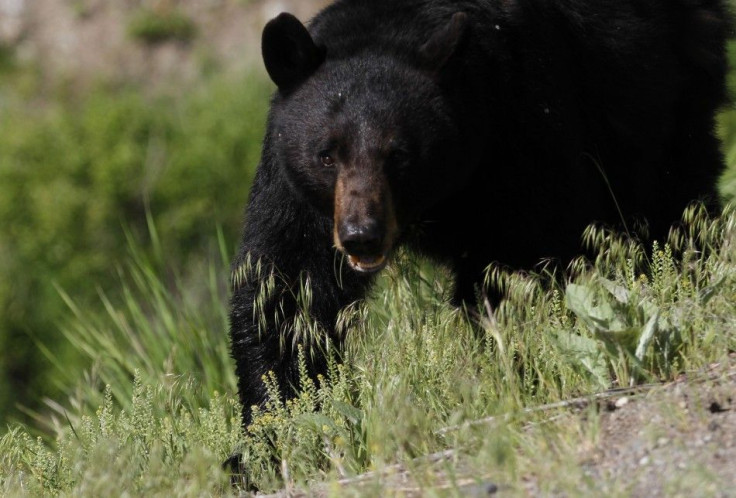Spotted: Black Bear In Nashville Images Captured By Trail Cams
Several images of a black bear captured by trail cameras are making experts think that the animals are returning to Davidson County.
The black and white photos of the black bear (Ursus americanus) made rounds all over the Internet and several sources, including Fox 17, was quick to report about the sighting.
According to the outlet, the animal was discovered roaming around a property off Hunters Lane in North Nashville. The 200 acre land, which is used mainly for deer and turkey hunting, is managed by Justin Daye.

Daye said that he was surprised at what he found when he checked the trail cameras that he installed in the property. The Tennessean, who also reported on the subject, claimed that what Daye discovered might only be the second black bear sighting in Davidson County in modern history.
The manager contacted the Tennessee Wildlife Resources Agency (TWRA) and told them about the sighting. It said that the black bear was likely to be male and that it came all the way down from Kentucky.
TWRA officials were firm when they said that the bear might end up making middle Tennessee as a place to hibernate itself for the upcoming winter. However, the Agency found it unusual since there is no black bear population in the area.
The black bear was captured on trail cameras in a large wooded area behind Hunters Land High School. https://t.co/cUWgXoheg2
— NewsChannel 5 (@NC5) October 31, 2019
“He's just doing bear things, he's staying in the woods, not dealing with people,” said Barry Cross.
The TWRA spokesperson also pointed that “it's possible” that the black bear Daye saw was the same animal that was found in Robertson County over the summer.
While making its way “further west,” a black bear was spotted in middle Tennessee on August 15 last year. At that time, it was the first sighting of the animal in quite a while considering that the area hasn't been a favorite spot of black bears since the late 1800s.
“We believe this bear is the same bear that has been hanging out in this area all fall. He's not moving very far and it appears he might be here to stay,” expressed TWRA District 21 Captain Dale Grandstaff via the Agency's official Facebook page.
A Davidson Co. hunter was surprised to capture a #bear on his trail-cam near Hunter’s Lane between I-65 & I-24 north of Nashville. Capt, Grandstaff believes this bear is the same bear that has been hanging out in this area all fall.
— TWRA (@tnwildlife) October 29, 2019
Read more...https://t.co/oq2lDropqH#tnwildlife pic.twitter.com/TA8xjngApZ
The post reminded residents not to approach nor feed a black bear should they see one. The animal is capable of defending themselves if a person gets too close, it added.
“If you were to come in contact with a bear, you should observe from a distance and then change your course of travel to avoid the bear.
If the bear sees you, then you should back away slowly to safety. Never run from a bear.”
Although black bears are classified as carnivores, they mostly eat berries and nuts, said Cross.





















